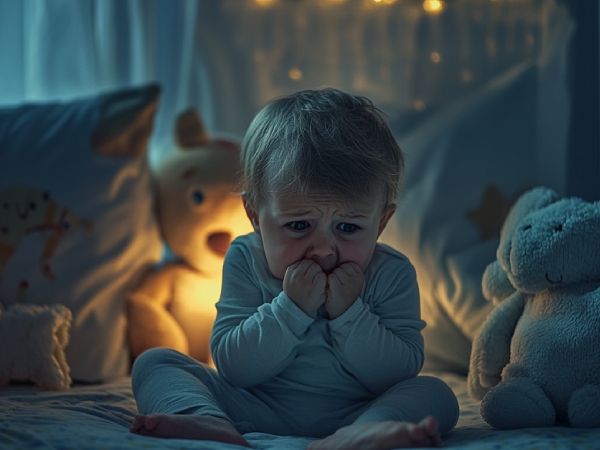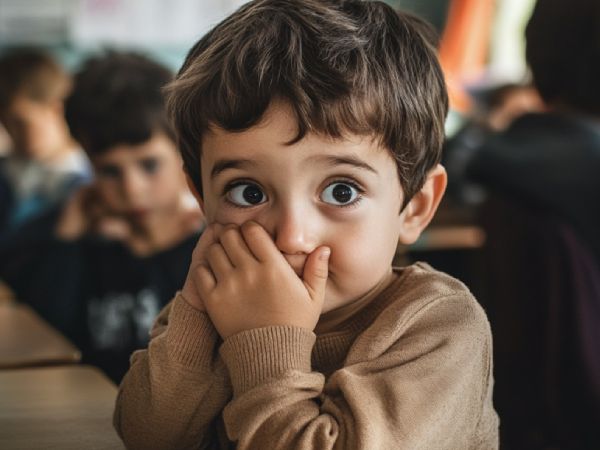Managing Conflict: The Role of Childhood Experiences

Emotions are weird, right? One minute, you’re totally fine, and the next, you’re irrationally angry over something small. Or maybe you avoid conflict altogether because it makes you anxious. Either way, a lot of this traces back to childhood.
We recently talked with the people at Siren Training, who specialise in Mental Health First Aid Courses and Wellbeing Workshops, and they had a lot to say about how early experiences shape the way we deal with emotions and conflict as adults.
It turns out, the way we regulate emotions and handle disagreements isn’t just about personality—it’s deeply influenced by how we grew up. Whether it was watching how our parents argued (or didn’t), how they reacted to our big feelings, or even the kind of friendships we had as kids, all of it plays a role. The good news? Even if childhood didn’t give you the best emotional toolkit, it’s totally possible to unlearn bad habits and build healthier ways to handle emotions and conflict.
Understanding Emotional Mastery
What It Actually Means to “Master” Emotions
Emotional mastery isn’t about never feeling upset, angry, or anxious. That’s just unrealistic. It’s about being able to recognise those emotions, understand where they’re coming from, and respond to them in a way that doesn’t make things worse. Think of it like levelling up in a video game—you learn from past mistakes, develop new strategies, and get better at handling challenges.
The Role of Emotional Intelligence
At its core, emotional mastery is part of emotional intelligence (EQ). People with high EQ tend to:
- Be more aware of their emotions
- Understand how their feelings impact their behaviour
- Handle stress and frustration without completely losing it
- Navigate social situations and conflicts without making things awkward or worse
This isn’t some magical trait you’re born with. It’s a skill that develops over time—mostly through childhood experiences.
Childhood Experiences and Emotional Development
How Attachment Styles Shape Emotional Responses
Ever wonder why some people seem naturally secure and confident in relationships, while others struggle with trust issues or emotional distance? A lot of this comes from attachment styles, which are shaped in early childhood based on how caregivers responded to emotional needs.
- Secure attachment: If a child’s emotional needs were met consistently, they usually grow up to be emotionally stable adults.
- Anxious attachment: If caregivers were inconsistent—sometimes loving, sometimes distant—it can lead to emotional hypersensitivity and fear of abandonment.
- Avoidant attachment: If emotions were ignored or dismissed, kids might grow up learning to suppress their feelings and struggle with intimacy.
- Disorganised attachment: A mix of both anxious and avoidant, often from chaotic or traumatic childhoods, leading to unpredictable emotional responses.

The Influence of Parenting Styles
Parenting styles have a huge impact on how kids learn to regulate emotions and handle conflict.
- Authoritative (the good balance): These parents set rules but are also warm and responsive. Their kids typically grow up with strong emotional regulation skills.
- Authoritarian (too strict): These parents demand obedience without much emotional warmth. Their kids might struggle with self-expression and fear conflict.
- Permissive (too lenient): These parents avoid setting boundaries, leading to kids who struggle with self-control and managing frustration.
- Neglectful (not present): A lack of emotional support can make it difficult for kids to develop emotional intelligence at all.
How Childhood Experiences Shape Conflict Management
Family Dynamics and Conflict Resolution
Did your parents argue openly and resolve conflicts in a healthy way? Or did they yell, shut down, or give each other the silent treatment? How conflict was handled in your home growing up plays a huge role in how you deal with it now.
- Healthy conflict resolution at home: Kids who see parents calmly discuss disagreements and compromise tend to develop similar skills.
- High-conflict households: Constant shouting and unresolved fights can make kids either aggressive in conflict or completely avoidant.
- Conflict-avoidant families: If parents never argued in front of their kids, those kids might grow up feeling super uncomfortable with any kind of confrontation.
Early Social Interactions
Beyond family, early friendships and school experiences also shape how we handle conflict. Bullies, cliques, or supportive friends all contribute to how we learn to stand up for ourselves, compromise, or even repress emotions. If a child is constantly dismissed or told to “just get over it,” they may grow up thinking their feelings don’t matter.
The Impact of Trauma and Neglect
For those who faced neglect or trauma, conflict can feel threatening rather than just uncomfortable. If childhood experiences taught you that expressing emotions leads to rejection or danger, it makes sense why you might struggle with confrontation as an adult. But the brain is adaptable, and unlearning these patterns is possible.
Overcoming Negative Childhood Patterns
Recognising Emotional Triggers
The first step in breaking old habits is figuring out where they come from. If you notice strong emotional reactions (like suddenly shutting down in an argument or feeling intense anxiety over minor conflicts), take a step back and ask:
- What’s really setting me off here?
- Does this remind me of something from my past?
- Am I reacting to the present, or an old wound?

Strategies for Emotional Regulation
If childhood didn’t exactly give you the best emotional coping skills, don’t worry—you can build them now. Here are some approaches:
- Mindfulness: Being present with emotions instead of reacting impulsively
- Journaling: Writing helps process emotions and identify patterns
- Breathing techniques: Simple but effective for calming down before reacting
- Cognitive reframing: Challenging negative thoughts that stem from childhood conditioning
Learning Healthy Conflict Resolution
If conflict makes you panic, feel defensive, or completely shut down, there are ways to improve:
- Pause before reacting. Give yourself a few seconds to think instead of immediately responding.
- Use “I” statements. Instead of saying, “You never listen,” try, “I feel unheard when this happens.”
- Set boundaries. You don’t have to engage in toxic conflicts just because you’re used to them.
- Therapy and workshops. A therapist or mental health training (like what Siren Training offers) can help rewire old habits and teach better coping mechanisms.
Wrapping It Up
Your childhood plays a big role in how you handle emotions and conflict, but it doesn’t have to define you. If you grew up in a way that made emotional regulation or confrontation hard, you’re not stuck with those patterns forever. Recognising where these behaviours come from is the first step, and with the right tools and support, you can develop healthier ways to manage emotions and resolve conflicts. It’s not about being perfect—it’s about making small, meaningful changes that help you and the people around you.